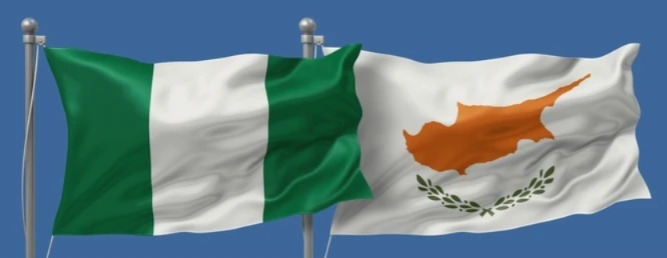
Reported by: Ime Richard Aondofa | Edited by: Henry Owen
The Republic of Cyprus, an Eastern Mediterranean island nation, celebrated its 65th Independence Day on October 1, coinciding with Nigeria’s own national Independence Day. While both countries share the same independence date and have endured wars, military coups, and internal disruptions, their post-independence development paths highlight contrasting outcomes.
Since gaining independence, Cyprus has managed to build a relatively stable political and economic environment. Despite experiencing civil unrest and external pressures, the country has steadily developed its infrastructure, financial sector, and social services. According to the International Monetary Fund (IMF) April 2025 World Economic Outlook, Cyprus’ GDP per capita is projected at $41,130, with a Purchasing Power Parity (PPP) of $65,090 per capita. These figures underscore the island nation’s successful economic policies and strategic planning, which have facilitated sustained growth and improved living standards for its citizens.
By contrast, Nigeria, Africa’s most populous country, continues to struggle with systemic challenges that have limited economic progress. IMF projections indicate Nigeria’s GDP per capita for 2025 at only $806.84, a figure that highlights the stark contrast in wealth accumulation between the two nations. While Nigeria’s rapid population growth has created a vast domestic market, it has also strained infrastructure, social services, and economic opportunities, contributing to persistent poverty and inequality.
Analysts, including Segun Adeniyi of ThisDay, note that the success of Cyprus demonstrates the power of stable governance, consistent policy implementation, and investments in human capital. He emphasizes that while Nigeria has abundant natural resources and a young, dynamic population, the country has yet to fully harness these assets due to governance challenges, corruption, and inconsistent policy frameworks.
The comparison also highlights the importance of long-term planning and resilience in the face of internal and external crises. While both nations have experienced turbulence, Cyprus’ focus on building institutions, encouraging foreign investment, and diversifying its economy has yielded measurable results. In Nigeria, however, political instability, insecurity, and policy inconsistencies continue to undermine development and limit the impact of available resources.
As both countries mark another year of independence, the story of Cyprus offers valuable lessons for Nigeria. Analysts argue that deliberate efforts to strengthen institutions, improve governance, invest in infrastructure, and prioritize human capital development are critical for Nigeria to realize the full promise of its sovereignty. Independence, they stress, is not just a symbolic milestone but a continual responsibility to improve the well-being of citizens and build a sustainable future.
📩 Stone Reporters News | 🌍 stonereportersnews.com | ✉️ info@stonereportersnews.com
📘 Facebook: Stone Reporters | 🐦 X (Twitter): @StoneReportNews


Add comment
Comments